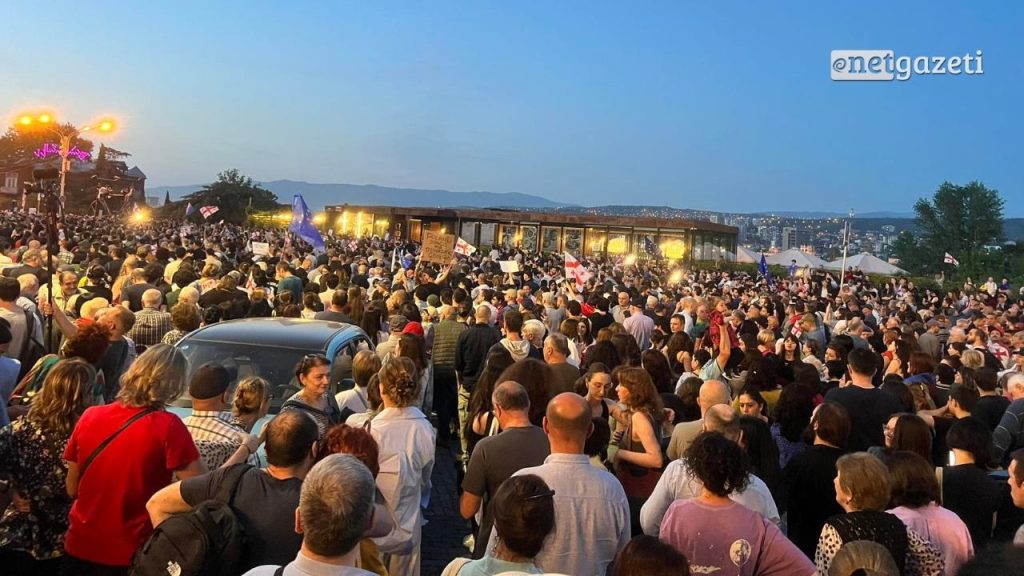Protests in the streets of Tbilisi have not ceased since the beginning of April when the Prime Minister announced that discussions on the “Law On Transparency of Foreign Influence” would be relaunched in the Parliament of Georgia. The main street of the capital, where the parliament building is located, has been blocked by protesters advocating “Yes to Europe, No to Russian Law” for over three weeks.
On April 28, at 7 pm tens of thousands of people gathered at Rose Revolution Square (also known as First Republic Square).

The ruling party has already announced that on April 29, one day before the second hearing of the “Russian law,” it will organize a massive rally of supporters of the current government. Preparations are underway to set up technical equipment and the stage for Georgian Dream in front of the parliament.
Thus the stage for the protest was set up on Rose Revolution Square. Traditionally, the Georgian national and the EU anthem were played. Representatives of CSOs, activists, and public figures addressed the crowd from the stage. About two hours later, the march began towards Rustaveli Avenue, culminating at the Parliament of Georgia.


The crowd held Georgian and EU flags, along with banners reading “No To Russian Law” and “Yes to Europe.”


REACTIONS:
The protests and the rally are usually followed by statements from Georgian MPs. However, the mass protest on April 28 did not find much resonance among the members of the ruling party:
In his Facebook post, Dimitry Samkharadze – a member of the parliament from the Georgian Dream faction – stated: “We look at you and laugh at you! In short, all opposition parties, all agents of NGOs, all swindlers and slaves of the Global War Party! Why don’t you relax? Tomorrow only the amount of our drivers will exceed the number of you altogether! We laugh at you, drag you and tear you! First, it’s all fun for us! Don’t you really have the illusion that you will give the right to a revolution to the little boys? Are you such idiots that you think you will be allowed to turn the nats and their snares? We will get tired of making fun of your stupidity and then you will get tired of it.“
President of Georgia Salome Zourabichvili, in her post on X on April 29, offers the comparison between the protest organized by the opponents of the “Russian law” and the meeting organized by the government: “Yesterday, Day 15 of massive spontaneous protests against ‘Russian law’ and for Georgia’s European future. Today, a ‘Putin-type’ action: civil servants ‘bused’ to Tbilisi to applaud the ruling party’s decisions. Real Georgia is free Georgia! European Georgia!”
The march against the “Russian Law” on April 28 did not go unnoticed by foreign officials. Robin Wagener, Coordinator of the German Federal Foreign Office for the South Caucasus, Moldova, and Central Asia, assessed the demonstration as “impressive” in his post on X.